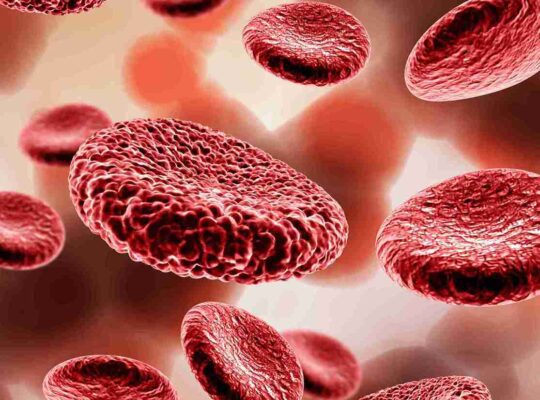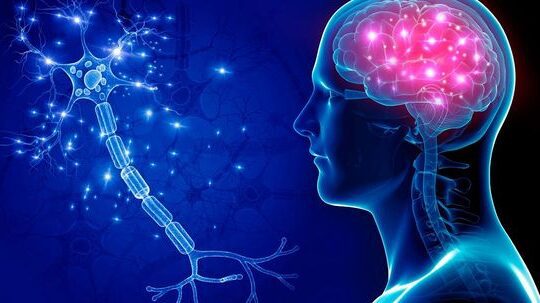An Understanding of Stress and Anxiety
Stress is the body and its response to that challenge or demand, while anxiety is the body’s repercussion to stress, which may or may not be accompanied by a feeling of unease. Understanding the distinction between both may assist in appropriate action and management of reactions to either. Some of the challenges may worsen stress due to health issues like Chronic Kidney Disease (CKD), while others may be new skills to be understood, like Time Management.
1. Prioritise Physical Health
It also shows that physical condition generally contributes to the reduction of pressure. Daily physical activity affects the release of endorphins—natural stress busters. You can try performing the exercises that are described in our blog about [Exercises for Low Back Pain] and [Build Biceps & Back] to maintain the body in good shape.
a. Exercise regularly
According to the Health & Sphere Internet site, exercise lowers stress because it improves blood flow and triggers the release of endorphins. [Morning Walk] on its own can help improve mood and decrease anxiety levels. In some of the tough days, it is recommended to take mild exercises like doing yoga or simple stretching.
b. Maintain a healthy diet
Choosing what we take into our stomach determines our body’s stress response. Some important vitamins are most vital to the health of the mind. In our blog [Vitamins for Digestion], we discuss other nutrients that are costly but promote a good mood and, hence, the ability to handle stress.
2. Mindful breathing techniques
Stress and anxiety can be so well addressed through the use of breathing exercises. Correct and conscious breathing is beneficial because it stimulates the relaxation response in the body. Go to our [Breathing In or Out] techniques for simple ways to manage thoughts.
Advantages of Breathing Exercises
New respiration rates also reduce cortisol levels, decrease blood pressure, and improve attention. Doing the breathing exercise for a few minutes at work, home, or wherever helps manage stress, and the best thing is that it does not cost money.
3. Positive Thinking and Self-Compassionate Approaches
The most direct way of dealing with anxiety, therefore, is by changing one’s paradigm a little. Self-compassion enables a person to excuse himself or herself from past bad actions and findings, plus the positive facets of a given situation.
a. Positive reinforcement
Hypothetically, positive thinking can lower stress to a very huge extent. If a person can find themselves dealing with stressful events, they can attempt to fixate on the solution and not the issue. A positive attitude greatly assists in handling obsessive-compulsive disorder, which presents itself in rigors exercising of repetitive activities, especially when the patient is stressed.
b. Self-care practices
They found that following [Evening Walks] and similar self-care behavioral programmes can enhance mental health. Practices and actions that are helpful to decrease anxiety levels include meditation, journaling, and spending time with nature.
4. Set healthy boundaries.
Put in place barriers that will keep you from feeling undue pressures. You should understand when it is good to refuse a request or task so as not to overload yourself. It also proves suitable for dealing with communications with difficult personalities, especially those exhibiting narcissistic behaviour.
b. Manage social media use
Spending too much time on social media can make a person worried because they feel incompetent or for missing out on something important. Minimise television viewing and do more things that are actually fun, such as exercising or exploring an interest.
5. Effective Time Management
One of the major causes of stress is always the inadequate control of time. Routine keeps the anxiety level down because it provides the much-deserved structure to the day. Check out [22 Life-Changing Hacks] to increase efficiency and make the most of each day.
a. Prioritise tasks
Do not put yourself under unnecessary pressure by accumulating big projects that may overwhelm you; instead, make sub-goals out of them. First, solve issues that need to be solved urgently, and so on to the low-priority problems to be solved. This method helps avoid a state of stress and allows for proper concentration while getting more done.
b. Create a balance
They will be able to work and also play hard at the same time. Most importantly, plan free time and ensure that you do not work when you are off work. In case you have [Bladder Calculi] medical appointments in your schedule, make sure to include rest time after it in your agenda to be able to prevent tiring easily.
6. Stress and anxiety assistance from professionals
At other times, stress and anxiety can be complicated, so professional help may be needed. It is still helpful to speak with a professional to get advice on how to deal with severe symptoms when they arise.
When to Seek Help
Should you find indicators of [Bipolar Disorder], [Schizophrenia], or even Panic Attacks, seek help from an expert in mental health. It’s also an avenue that delivers tools to master certain signs and wonders.
7. Engage in relaxing hobbies
Hobbies are important to help escape daily stress factors. Even in painting, playing, or cooking, whatever act you savour releases tension. For those interested in fitness, I suggest envisioning the [Best Exercises for Shoulder Pain] to ensure hobbies benefit health.
Benefits of Creative Hobbies
Being creative in the workplace puts a person in a better mood and reduces tension. When pressured and worried, go draw, write, or craft. Let such activities be of concern as they help to stimulate the brain, shifting from stress to creativity and providing a sense of accomplishment.
8. Improve sleep quality
It is clear that sleep of good quality is essential for good mental health. Stress levels rise, and your ability to manage stress is reduced because you are unable to get enough sleep. Sleep therapy recommendations for individuals with [soft tissue sarcoma] or [multiple myeloma] should be provided by a doctor.
Tips for Better Sleep
Go to bed at a proper time and avoid exposure to gadgets at night. Simple things, such as listening to or reading music, can also assist. If such symptoms occur, a professional should be sought to ascertain if there are serious health issues.
9. Mindfulness and Meditation Activities
Stress and anxiety can be reduced effectively through meditation. Engaging in mindfulness exercises can help reduce stress long-term.
Benefits of Meditation
Meditation goes a long way in relation to [types of pain] and other chronic diseases because it helps to manage the mind away from such issues. Regardless of whether people practice mindfulness or contemplate in a still and quiet manner, five minutes a day can make a big difference.
10. Learn Healthy Ways of Coping
Stress has to be managed in a healthy way. Self-medication involving substance dependence may even exacerbate anxiety and lead to conditions like [gastritis].
Develop Resilience
Coping involves recovering from life’s challenges. Resilience means standing up to a challenge, making it through, and rising stronger. Maintain a positive attitude, don’t isolate yourself, and manage each step carefully.
Frequently Asked Questions
What are some fast ways to cope with stress and anxiety?
Taking a short walk, doing breathing exercises or a few stretches are good methods of dealing with stress within persons a short space of time.
Isn’t it possible to find out that a healthy diet may lead to the decrease of stress?
Yes, moderation to eating habits gives the body input of nutrients to help fight stress.
What can I do to my sleep that will help me reduce anxiety?
Go to bed and wake at regular hours, avoid bright screens before bedtime and do mindfulness to get a better night’s sleep.
Are it possible for a person to feel anxious everyday?
Some minor anxiety is ordinary; however, anxiety that is present each day and affects an individual’s ability to function may need the assistance of a therapist.
Which type of exercises are beneficial in stress regulation?
Stress busting activities include cardiovascular exercises, yoga, and strength training exercises.
How does mindfulness help to reduce or better manage anxiety?
Awareness means you learn how to concentrate on the present moment instead of worrying about the future.
Online social networking: does it aggravate anxiety?
Yes, that is true, taking a lot of time on social media platforms increases cases of Anxiety and feeling of inadequacy.
When should I go for stress and anxiety help?
If it gets in the way of living your day-to-day life and if it’s causing you significant levels of stress then you should seek help from a professional.
In what way, does positive thinking aid in the process of handling stress?.
Positive thinking helps in a person’s ability to find an easy way out of a problem.
What treatment is available for physical condition associated with severe anxiety?
Of course, activities and medications can help people with severe anxiety if they are prescribed by a doctor.
By incorporation of the above strategies together with the right balance of direction the following steps can be made to Manage Stress and Anxiety and at the same come up with better way of living.












